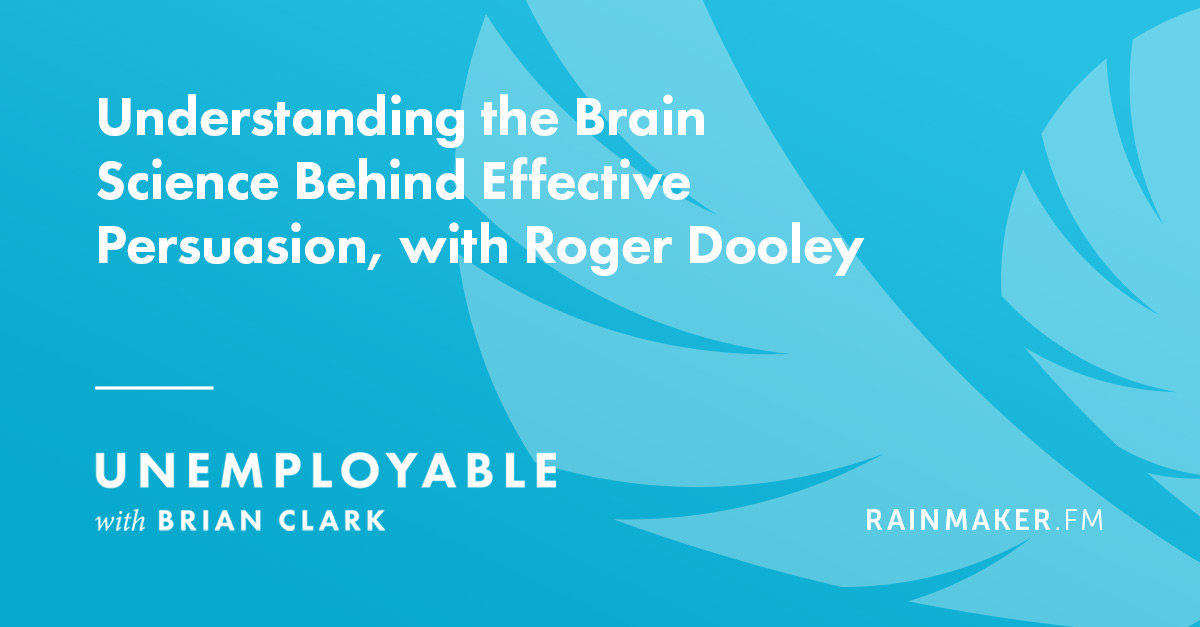The ancient Greeks — notably Aristotle — used anecdotal observation to nail much of what we know about persuasion. The fundamentals of the art haven’t changed much in 2,300 years, because human nature hasn’t changed, even as the context in which we operate has changed dramatically.
In the 20th century, social psychology took the ancient principles of rhetoric and proved them correct in controlled experiments. The work of Dr.Robert Cialdini in particular helped prove the power of authority, social proof, scarcity, and other fundamental aspects of influence.
Now, we have neuroscience. Brain imaging allows us to go beyond observing human response alone, and see which parts of the brain “light up” while responding the way we do in certain situations.
Roger Dooley is the author of Brainfluence: 100 Ways to Persuade and Convince Consumers with Neuromarketing. Today he joins us to reveal the keys to understanding what makes people choose and behave the way we do, along with some cutting-edge thoughts about “tribal” marketing.

This article's comments are closed.